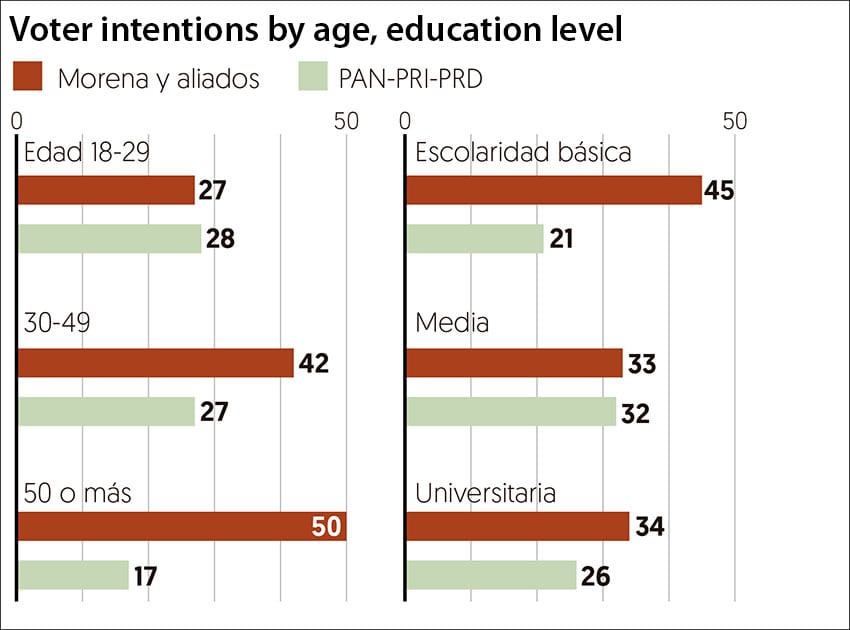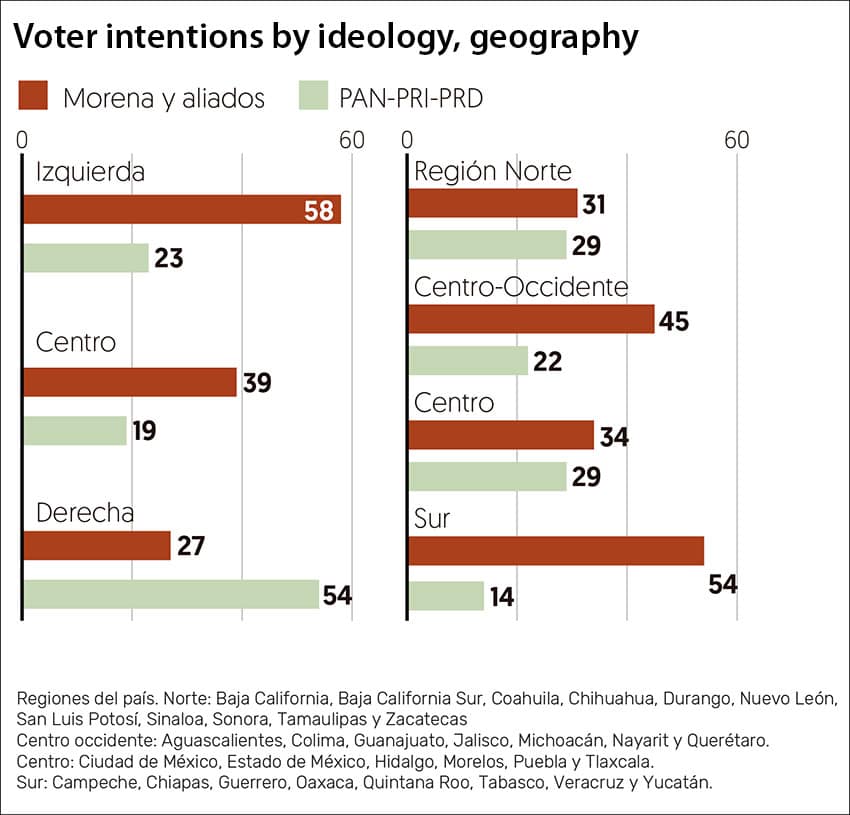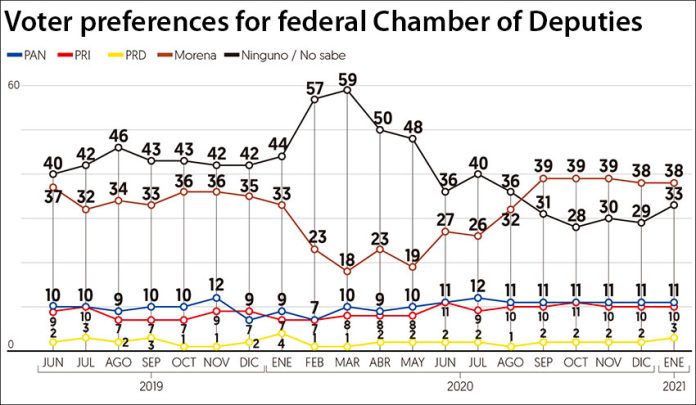A typical AMLOver – a big fan of President López Obrador – is 50 or older, didn’t study past middle school level and lives in the south of the country, a new poll suggests.
A survey conducted by the newspaper El Financiero established that the ruling Morena party, which López Obrador, or AMLO, founded, finds its greatest support among those cohorts of the population.
El Financiero surveyed 1,000 adults during the middle and end of January, and 50% of the respondents aged 50 or over said that they would vote for Morena and its allies if a federal lower house election was held the day they were polled.
(The election, at which all 500 seats in the Chamber of Deputies will be up for grabs, will be held June 6.)
In contrast, only 17% of respondents aged 50 or over said that they would vote for the three-party alliance made up of the National Action Party (PAN), Institutional Revolutionary Party (PRI) and Democratic Revolution Party (PRD).

Morena’s support dropped to 42% among those aged 30-49 and 27% among the 18-29 cohort, which supported AMLO in droves at the 2018 presidential election. The PAN-PRI-PRD coalition increased its support to 27% and 28%, respectively, among the same age groups.
Morena also outstripped its rival among poll respondents whose highest level of educational attainment was middle school or lower. Only 21% of respondents in that cohort said they would vote for the three-party alliance while 45% indicated they would support Morena.
Among respondents who have completed high school, it was a much tighter race with 33% supporting Morena and 32% opting for the PAN-PRI-PRD coalition. Among respondents with a university-level education, Morena prevailed 34% to 26%.
Residents of southern states such as Chiapas, Guerrero and Oaxaca – the three poorest states in the country – support Morena in much greater numbers than the ruling party’s rivals, the poll found. AMLO’s party found 54% support among southerners, a figure almost four times higher than the 14% backing of the tripartite pact.
Morena also came out on top in other parts of the country but by smaller margins. In the central region – Mexico City, México state and Morelos among other states – Morena prevailed 34% to 29%. In the central west, including Jalisco and Nayarit, the ruling party garnered 45% support versus 22% for its rivals while in northern Mexico, the result was a much closer 31% to 29%.
The poll showed that Morena’s support is by no means limited to poorer Mexicans. Among respondents who said that their economic and work situation was good or very good, 62% said that they would vote for Morena and its allies (the Labor Party, among other small parties) while only 13% of the same cohort indicated support for the PAN-PRI-PRD alliance.

One-third of respondents who described their economic and work situation as poor or very poor said they would vote for the ruling party while 26% indicated support for its rivals.
Among people who identified as being on the left, center and right of the political spectrum, support for Morena – ostensibly a leftist party – was 58%, 39% and 27%, respectively.
The three-party alliance, which includes the conservative PAN, the leftist PRD and the centrist PRI, garnered 23% support among leftists, 19% among those in the center and 54% – double the Morena vote – among right-wingers.
Among respondents who believe that the government has successfully managed the coronavirus pandemic – something that becomes harder to argue virtually by the day as Mexico’s case tally and death toll continue to climb – 65% said that they would vote for Morena versus just 12% for its rivals. The PAN-PRI-PRD came out on top among those who believe the pandemic response has failed but only just, prevailing 33% to 30%.
El Financiero also asked respondents about their individual party preferences, and found that 38% would vote for Morena in an imminent lower house election, 11% for the PAN, 10% for the PRI and 3% for the PRD. At 33%, the most popular response after Morena was “none of them/ I don’t know.”
The June 6 election will be the largest in Mexico’s history, according to the National Electoral Institute. In addition to voting for new federal deputies, citizens will also elect governors in many states as well as other representatives at the state and municipal level.
Source: El Financiero (sp)
